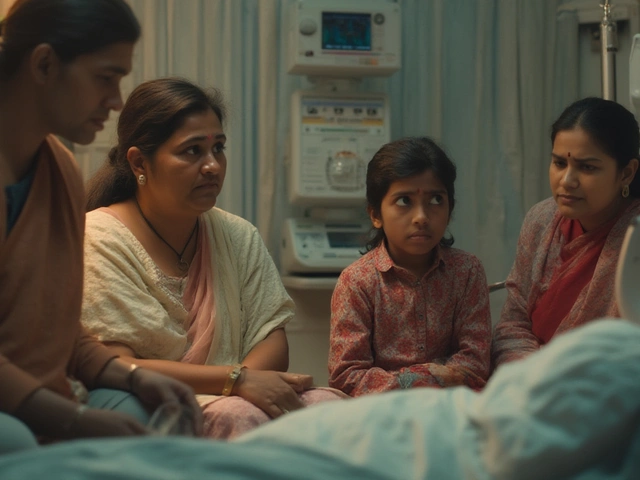Wellness Check: Your Simple Guide to Staying Healthy
Ever wonder why doctors keep talking about a "wellness check"? It’s basically a quick health tune‑up that catches problems before they become serious. Think of it like a car service—regular check‑ups keep you running smooth and safe. In India, a wellness check can be done at a clinic, a hospital, or even a specialized health‑screening center, and it doesn’t have to be a long, costly affair.
Why a wellness check matters
The biggest benefit is early detection. Many conditions—high blood pressure, diabetes, and cholesterol issues—show no symptoms early on. A simple blood test or blood‑pressure reading can flag them before they cause trouble. Catching these problems early means you can start treatment sooner, often with lifestyle changes that are easier to manage. It also gives you a clear picture of where you stand, so you can set realistic health goals.
Beyond spotting diseases, a wellness check is a chance to talk about habits that affect your health. Do you drink enough water? How’s your sleep? Are you moving enough? Your doctor can give quick, practical advice that fits your daily routine. In a country where health awareness varies, this conversation can be a game‑changer for many.
What a typical wellness check includes
A standard wellness check usually lasts 20‑30 minutes and covers a few key things:
- Vitals: Blood pressure, heart rate, temperature, and weight.
- Blood tests: Glucose, cholesterol, and basic organ function checks.
- Physical exam: A quick look at your heart, lungs, abdomen, and joints.
- Questionnaire: Your doctor asks about family history, diet, exercise, and any symptoms you might have ignored.
Depending on your age and risk factors, the doctor might add extra tests—like a thyroid panel or an ECG. Most centers in India offer package deals that bundle these tests, making it affordable for most families.
Before you go, bring any previous reports, a list of medicines you’re taking, and a note of any concerns. Being prepared helps the doctor focus on what matters most to you.
After the check, you’ll get a report that shows where you’re good and where you need work. If something looks off, the doctor will suggest follow‑up tests or lifestyle tweaks. Simple changes—like cutting down sugary drinks, walking 30 minutes a day, or adding a bit more fiber—can make a huge difference.
Remember, a wellness check isn’t a one‑time event. Aim for at least once a year if you’re healthy, and more often if you have chronic conditions. Scheduling it at the start of a new year or before a big trip can be a good reminder.
So, next time you hear about a wellness check, think of it as a short, cheap way to keep your body in check. Book an appointment, ask questions, and walk out with a clear plan. Your future self will thank you.

Understanding the Ideal Frequency for Health Check-Ups
Regular health check-ups play a vital role in maintaining overall well-being by identifying potential health issues before they become serious. The frequency of these check-ups can depend on factors such as age, lifestyle, and family medical history. Understanding the various components of a health check-up helps in tailoring them according to individual needs. Awareness of the latest advancements in preventive healthcare can enhance the effectiveness of these check-ups. Explore the right balance and timing to ensure optimal health management.

What Organ Is Metformin Hard On? Know the Real Risks
Apr, 24 2025



